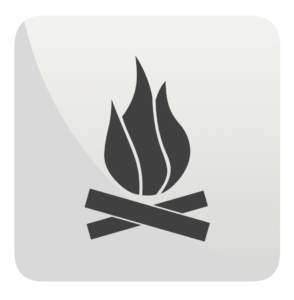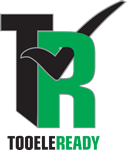Residential Fires

Actions for Residential Fires
Before a Fire
Make sure your home is free of unnecessary combustible materials.
➤ Do not store flammable liquids inside the home
➤ Do not run wires under carpets or rugs
➤ Do not store matches or cigarette lighters where children can get them
➤ Do not leave cooking unattended
➤ If you smoke, do not smoke in bed or in other positions where you may fall asleep. Also, have many large ashtrays in the home.
➤ Know avenues of escape. Always have two ways out of every room.
➤ Have a place to meet so no one tries to go back into a burning building to look for someone needlessly
➤ Have fire extinguishers near the kitchen and the garage
➤ Have escape ladders for all windows higher than eight feet off the ground
➤ Install a smoke detector in every bedroom, in every hallway outside of a bedroom, and at least one on every level of the house
➤ Test the smoke detector monthly. Change the batteries in the smoke detectors in the fall when you change your clocks.
➤ Plan and practice a family fire drill on the first of each month. A good plan will have a place to meet, two ways out of every room, and an escape ladder.

➤ Do not store flammable liquids inside the home
➤ Do not run wires under carpets or rugs
➤ Do not store matches or cigarette lighters where children can get them
➤ Do not leave cooking unattended
➤ If you smoke, do not smoke in bed or in other positions where you may fall asleep. Also, have many large ashtrays in the home.
➤ Know avenues of escape. Always have two ways out of every room.
➤ Have a place to meet so no one tries to go back into a burning building to look for someone needlessly
➤ Have fire extinguishers near the kitchen and the garage
➤ Have escape ladders for all windows higher than eight feet off the ground
➤ Install a smoke detector in every bedroom, in every hallway outside of a bedroom, and at least one on every level of the house
➤ Test the smoke detector monthly. Change the batteries in the smoke detectors in the fall when you change your clocks.
➤ Plan and practice a family fire drill on the first of each month. A good plan will have a place to meet, two ways out of every room, and an escape ladder.
During a Fire
➤ If you are outside, stay outside. Do not return for anything. Do not re-enter the building until appropriate authorities have given permission.
➤ If you are inside, get out. Go to the nearest house or building and call 911. Report the address and type of fire. Listen to and follow instructions. Go to the family meeting place.
➤ If you are inside and have time, make sure everyone is out
➤ If you are in a closed room or office, do not open the door without first feeling it or the doorknob with the back of your hand so you don’t burn your hand. If it is warm or hot, do not open it, but unlock it to help rescue or fire personnel. ➤ If there is smoke, get under the smoke, no matter how low it is, and get out of the building
➤ If you cannot use the door or other means of escape to exit and there is smoke, use clothes, sheets, etc. to stop the smoke from coming in. Go to the window and yell or blow a whistle.
➤ If you see someone on fire, use a coat or blanket, but not your bare hands, to smother flames
➤ If possible, turn off the gas and electricity from outside the house
➤ In a public building, know two ways out. If you hear a fire alarm, immediately exit the building regardless of what you are doing. Follow the established evacuation instructions
Each year more than 4,000 Americans die and more than 25,000 are injured in fires, many of which could be prevented. Direct property loss due to fire is estimated at $8.6 billion annually. Working smoke alarms decrease your chances of dying in fire by half.
➤ If you are inside, get out. Go to the nearest house or building and call 911. Report the address and type of fire. Listen to and follow instructions. Go to the family meeting place.
➤ If you are inside and have time, make sure everyone is out
➤ If you are in a closed room or office, do not open the door without first feeling it or the doorknob with the back of your hand so you don’t burn your hand. If it is warm or hot, do not open it, but unlock it to help rescue or fire personnel. ➤ If there is smoke, get under the smoke, no matter how low it is, and get out of the building
➤ If you cannot use the door or other means of escape to exit and there is smoke, use clothes, sheets, etc. to stop the smoke from coming in. Go to the window and yell or blow a whistle.
➤ If you see someone on fire, use a coat or blanket, but not your bare hands, to smother flames
➤ If possible, turn off the gas and electricity from outside the house
➤ In a public building, know two ways out. If you hear a fire alarm, immediately exit the building regardless of what you are doing. Follow the established evacuation instructions
Each year more than 4,000 Americans die and more than 25,000 are injured in fires, many of which could be prevented. Direct property loss due to fire is estimated at $8.6 billion annually. Working smoke alarms decrease your chances of dying in fire by half.

